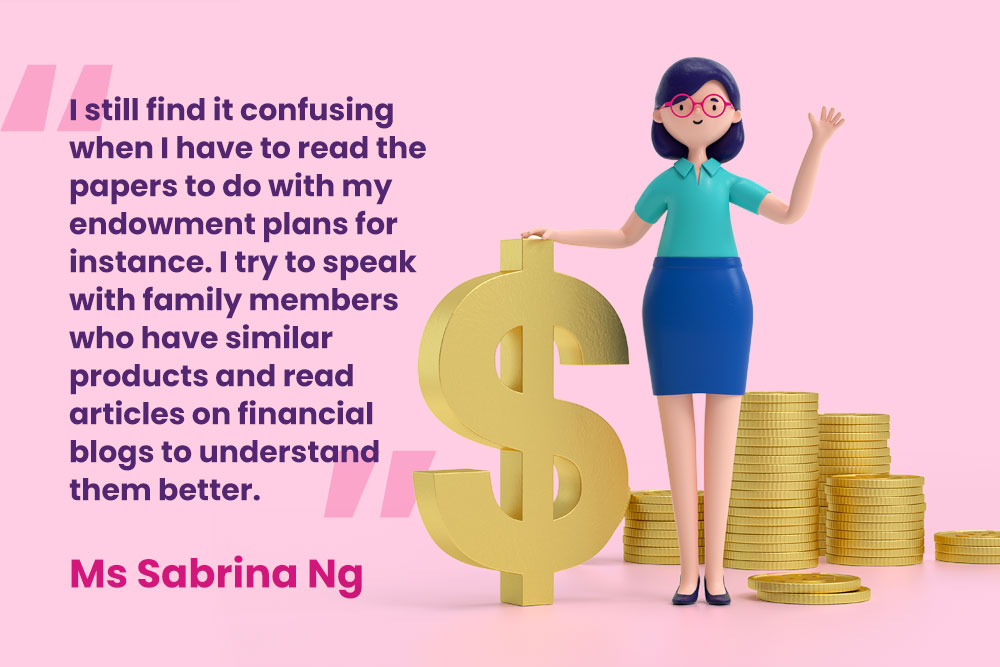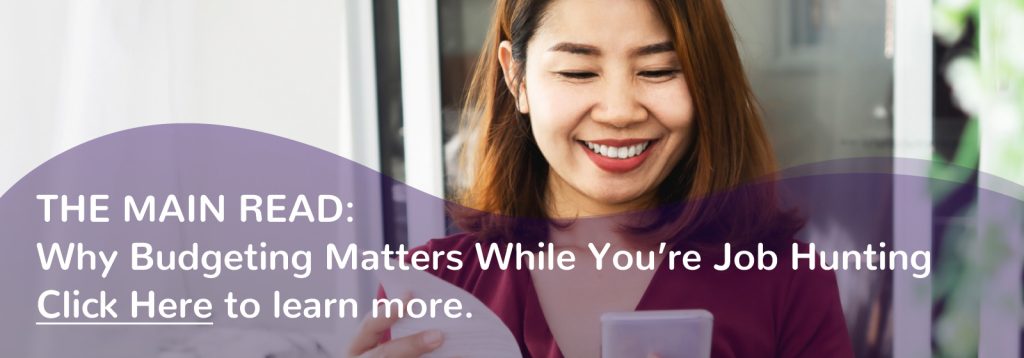Financial planning is an important aspect of #adulting. It helps us figure out how to meet our needs at different stages of life such as buying a car. Moreover, it ensures that we have enough savings to tide us through difficult situations like unemployment.
Yet, many women fail to take charge of their finances.

A UBS Global Wealth Management survey showed that close to 50% of millennial women preferred to let their spouses make financial and investment decisions because they believed that their spouses know more about it.
Findings from a 2019 OCBC online survey also showed that women disliked investing and half of those surveyed did not know how to increase their wealth.
Regardless of the reasons, women may not be giving themselves sufficient credit for their financial literacy and competency. A 2019 study by financial institution GoBear found that Singaporean women underestimated their perceived financial literacy more than men. Additionally, findings from OCBC indicated that women tended to outperform men when they did research and consulted financial representatives on investing.
We speak to two women who have kickstarted their financial planning journeys.
Planning for your needs
Civil servant Ms Verena Ng, 29, started looking into this area by chance.

“I started financial planning after I found my first job when I was approached by a friend who was a financial planner. However, I only started taking it more seriously in my late 20s, after my father experienced some health difficulties,” she shared.
In the beginning, Ms Verena bought insurance to ensure that she was adequately covered, before moving on to investing when her income increased. She also relied on her financial planner to advise her on the steps she needed to achieve her goals.
But managing money was not easy for Ms Verena. She also had doubts about investing.
“One concern I had was whether I would lose money through my investments. I had to ensure that I also had enough savings and think of investment as a long-term plan to supplement my retirement, instead of using investing to make a quick buck.”
Like Ms Verena, Ms Sabrina Ng, 32, also struggled with money management.
The educator at The Learners Collaborative School shared that she had difficulty understanding the different financial terms.

Elaborating, Ms Sabrina said: “As someone who isn’t trained in finance, economics or business, when I first read up on financial planning, there were many terms that I’ve never heard of.”
“Even today, I still find it confusing when I have to read the papers to do with my endowment plans for instance. I try to speak with family members who have similar products and read articles on financial blogs to understand them better.”
Ms Sabrina became motivated to start managing her finances after learning about the importance of having financial goals when she read some books. At the same time, she also developed an interest in investing and wanted to keep track of her investments.
Describing the financial planning that she does as “simple”, Ms Sabrina explained that she tries to save at least half of her salary. She also created an Excel spreadsheet to track her finances monthly. Besides that, she invests in insurance endowment plans and engages a financial planner to help her with her investments.
Since then, she has reaped the benefits of knowing how to plan her money.
“I didn’t work when I was pregnant and for another year after I gave birth, so my savings dipped quite a bit. Keeping track of my finances and having my goals in mind made sure that I was careful with my expenditure and thus, I remained financially independent even without an income.”
Tips on financial planning
To find out more about managing your money, Ms Sabrina suggests joining Facebook Groups and reading books from the library.
Apart from that, you can read up on the different types of investments and savings on Moneysense, a financial education programme by the government.
You can also utilise your Skillsfuture credits to learn more about managing and growing your wealth.
As seen from the experiences above, financial planning may be difficult at the start, but you will reap the benefits in the long run when you can meet your goals at different life stages and achieve financial independence one day.















